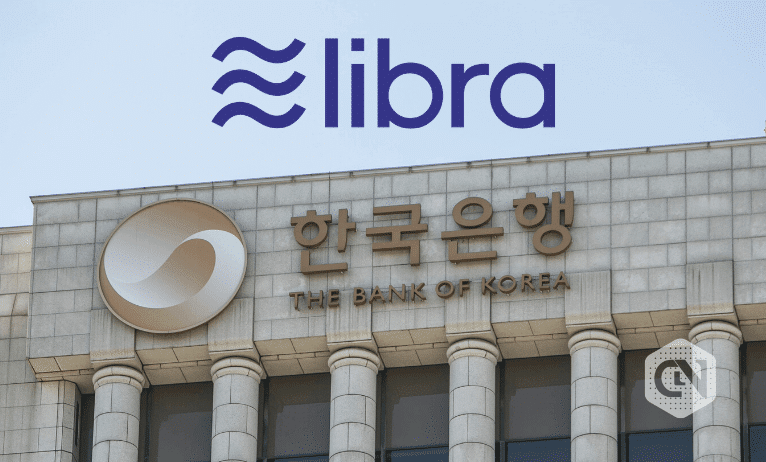Bank of Korea (BOK) to Adopt “wait-and-see” Approach for Facebook’s Libra

Where on the one hand, Facebook, the social media giant is fast pacing towards the launch of its stablecoin project Libra, central banks and regulatory authorities from around the world, on the contrary, are showing some serious concerns over the highly-controversial cryptocurrency project. Issuance of public digital currency by the private firm has rooted the fear of the loss of monetary sovereignty for the state, and this has resulted in a chaotic situation in the virtual currency arena.
Recently, leading the central bank authority, the Bank of Korea gave a controversial statement on the Libra project. The final body affirmed that it is taking a “wait-and-see” approach on Facebook’s crypto offering. Unlike China’s central banking institution, BOK revealed that it does not purport to have any immediate plans of issuing a government-backed digital currency or central bank digital currency (CBDC), any time soon.
Financial regulators across the globe are watching closely and carefully how to impose regulations against stablecoins like Libra,
quoted an official of the Bank of Korea.
The official who serves as the chief of the digital payment research at the central bank revealed that the bank is in constant discussions with its counterparts from other countries on the Libra controversy and is trying to figure out a strategic approach for handling the situation in the best possible way. As per some reports, apart from the People’s Bank of China, another bank that is planning to roll out a digital currency in response to Libra is the European Central Bank.
He further added that
Our view is that most Korean people do not feel difficulty in making transactions with current payment methods. Under the circumstance, we do not have to be in a hurry to catch up with the latest trend whose security and stability have not been confirmed.
According to the industry experts, it is too early for central banking institutions belonging to different parts of the world to form a view regarding the prevailing issue.
Teunis Brosens, the chief economist for digital finance and regulation at ING, said during an interview that developing a CBDC in haste merely to counter the insecurities hovering over stablecoins is certainly not an intelligent take. He insisted that it is the responsibility of the central banks to brush up the stablecoin developers about the conditions and limitations which are needed to be complied before entering the marketspace.
Working as an economics professor at INSEAD, Antonio Fatas emphasized that financial authorities should work upon a systematic framework for stablecoins so that there is no room for confusion and lack of trust among the developers as well as the investors.



